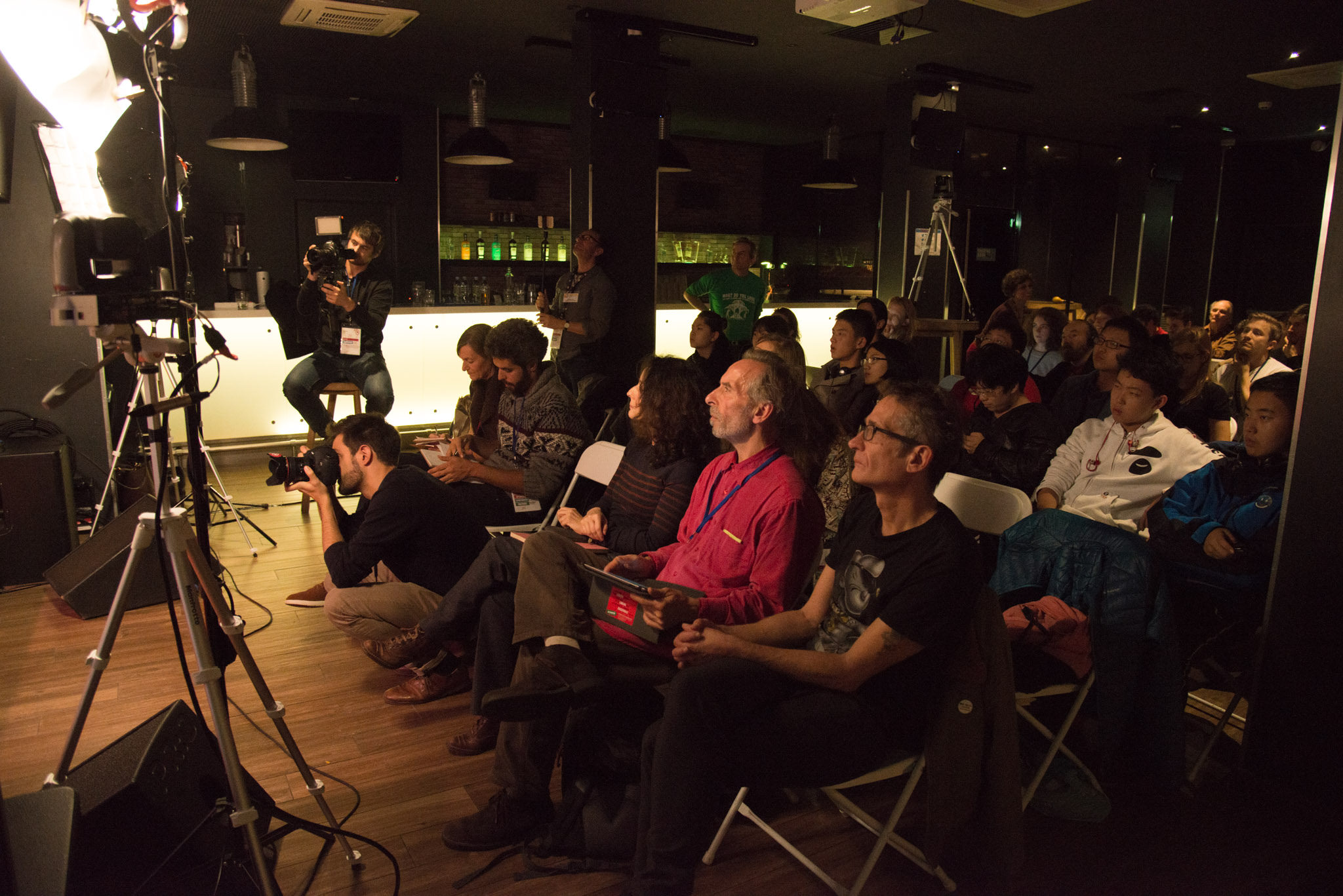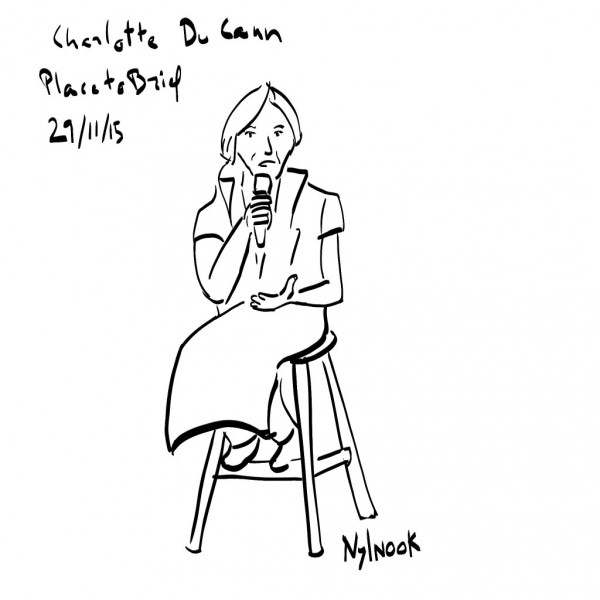Place to B welcomed eight speakers to discuss the messages that surround climate change as a global issue with the question: “Why is climate change, this crucial central issue of our time, so easily ignored?”
This question was at the forefront of the global demonstrations that took place over this weekend. Although the march planned for this Sunday in Paris was cancelled after the tragic attacks on the 13th of November, the organisations Alternatiba, the Coalition Climat 21 and Avaaz hosted demonstrations of solidarity and a desire to our voices heard, despite the cancellations.
Gayané Adourian, live coverage supervisor for Place to B, put up photos of the thousand strong human chain that followed the original march route, shoes covering the Place de la République to symbolise and honour those who could not march, and the messages that dominated the placards at marches around the world. Among the photos from the day were also images of protestors clashing with the police as the peaceful demonstrations wound down.
“It’s almost a tradition” said Andrew Boyd, creative activist and author of the book Beautiful Trouble: A Toolbox for Revolution, of the confrontations at the end of demonstrations between a few people and the police. He went on to talk about the role of creative actions in finding, and sharing individual messages about climate change.
In the Climate Ribbon art-ritual he asked people take a moment to really think deeply about what they ‘love and hope will never lose to climate change’, before writing it down on a long coloured ribbon and hanging it with others on display. Each person could take away someone else’s message to wear on their wrist, and in this way Boyd hopes to capture the shared grief, hope and solidarity in the face of a daunting and complex problem like climate change.
Complexity doesn’t just dog the understanding of climate change issues for the public. The French journalist Anne Tezenas du Montcel shed light on negotiations at the COP. “You have to learn another language to understand what’s going on” she said. But this language she says, is in fact useful, and necessary, to build solutions step by step and tease out solutions that can be widely accepted by countries with vastly different priorities.
For Dr. Adam Corner, research director at Climate Outreach, a language that is specific to climate change issues can be a major barrier to engagement. “We did surveys that found the most common association with climate change is a polar bear,” he said, “when people see ‘divestment’ it doesn’t make sense to them and they don’t identify with it.” Climate Outreach’s research in partnership with the Royal Society for the Encouragement of Arts, Manufactures and Commerce (RSA) to develop a new way to “talk, think and act” on Climate Change laid out seven dimensions to find the “right kind of simple for the world’s most complex challenge”.
These seven dimensions helped frame the purpose of Place to B in its aim to reshape the narrative around Climate Change to be more inclusive, acknowledge its complexity while still engaging with “people, business and governments” in what it means to “‘act’ on climate change with conviction.”
George Marshall, Dr. Corner’s colleague at Climate Outreach and author of Don’t Even Think About It: Why Our Brains Are Wired To Ignore Climate Change, reiterated the challenge we face in tackling climate change and the need to take advantage of opportunities to create the new narratives we need to face that challenge.
The final conversation of the first Place to Brief brought together Associate Professor of Sociology at Paris II – Institut Français de Presse, Jean-Baptiste Comby and two prominent journalists who have engaged extensively with Climate Change, Catherine Guilyardi of Radio France and the BBC and Charlotte Du Cann art editor for the Dark Mountain Project. The discussion turned to the role of the media in shaping the story of Climate Change. “Journalists aren’t experts, but they get invited everywhere” said Guilyardi. She emphasised how important it is to communicate the science of climate change.
The issue of inclusivity came back into play as well with Jean-Baptiste Comby stating that those who most actively engage with the issue of climate change come from a certain socio-economic class who in many ways would like to “preserve a way of life that currently relies on the system that has created and fuels the problem.” Charlotte Du Cann agreed saying, “We have to acknowledge that a lot about our lives will need to change in order to overcome this problem.”
Every element of Place to B is aimed at changing the narrative around climate change, through reaching new audiences and telling new stories in new ways. The team and community at Place to B brought its own creativity and ideas to the brief. Actors from the Creative Factory performed improv skits, a couple videos were shown and questions from the audience (in the room and on line) contributed to the discussion.
You can watch the video of the discussion on our website www.placetob.org and join us for the live stream of the next Place to Brief tonight at 6pm CET.





